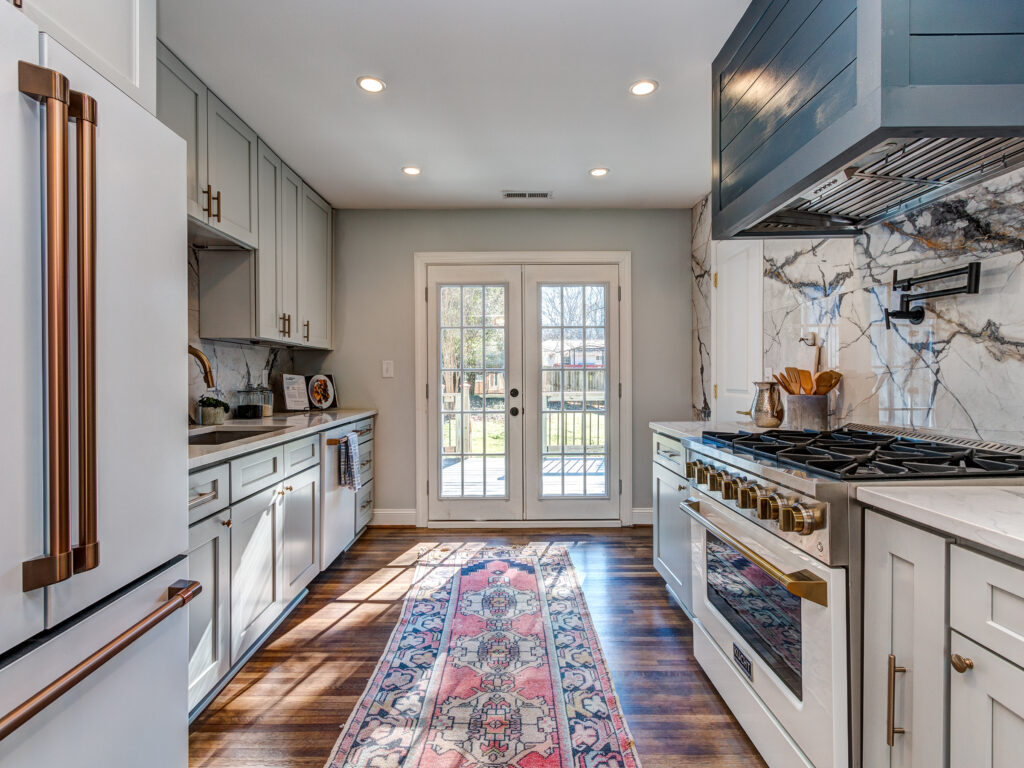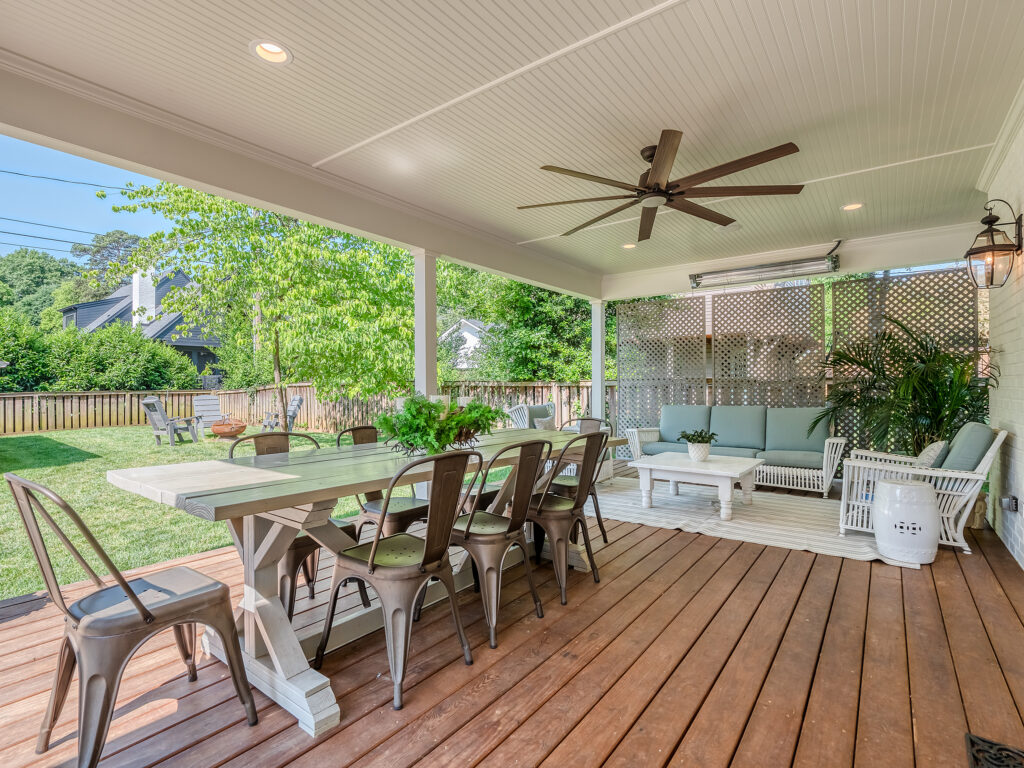Whether or not you are actively looking to buy or sell this year, chances are you have heard all sorts of real estate market updates from everyone from your neighbors to the news. With all that information, it can be hard to discern fact from fiction. Luckily, the Genevieve Williams Real Estate team is here to bust the real estate myths we hear almost every day.
MYTH #1: Always leave yourself room to negotiate when submitting an offer.
MYTH #2: You should fully renovate your home before selling it.
MYTH #3: In a bidding war, the highest price always wins.
Rachel: While there’s no doubt that the highest-priced offer is going to rise to the top of the consideration pile, there is definitely so much more to consider. If the highest price is via an offer that needs FHA lending and therefore has strict appraisal requirements, or maybe attaches a contingency (needing to sell another residence first) to the offer, then there’s a good chance that offer has just moved itself to the bottom of the offers.
Other things to consider that can make an offer more or less attractive: if a buyer needs a loan, what’s their loan to value ratio? How soon are the due diligence and closing dates? And in this current market, buyers are desperate to win, so they’re offering anything and everything they can, such as appraisal or inspection waivers, representing that they won’t ask the seller to cover an appraisal gap or repairs that may come up during inspections. Here’s a little “secret,” though, that I always tell my clients: in North Carolina, a buyer can walk away for any reason, or no reason at all, so while a competitive buyer may be offering these waivers, if they find that the appraisal gap is too big, or find a repair issue that the seller won’t address, the buyer is still within their right to terminate the contract over it.

MYTH #4: Houses sell themselves in this market.
Emily: Any house, great or not, can ultimately sell, but houses that are not properly prepared can rack up days on market and cost a seller thousands of dollars. Even in this competitive market, sellers are not guaranteed multiple offers or even list-price offers. You only get one first impression so capitalizing on your home’s entrance into the market is essential. A home needs to be properly priced, prepared, and marketed.
There are also different types of preparation that need to occur. Almost all buyers view a home online initially so a home’s digital impression is key. Online photos and video are a major deciding factor on whether a buyer takes the next step of seeing a home. Homes need to be de-cluttered, feel spacious, and be well lit in photos. In order to achieve that, it is perfectly OK to hide personal belongings in closets, but when that same prospective buyer comes to see your home in person it is a different story. A closet crammed full of belongings can give the wrong impression that the house has no storage. Along the same vein, buyers can get spooked or overestimate the cost of repairs so doing some minor fixes like fixing a leaky faucet or repainting a room before you list can actually save you money in the transaction. Our team can guide you through the process of readying your home to sell so you can best position yourself to sell quickly and for top dollar.
MYTH #5: You should wait to spring to sell your house.
MYTH #6: All real estate agents are the same. It doesn’t matter who you use.
Siobhan: All real estate agents are definitely not the same. The real question is how do you figure out the differences? Number one, are they doing business? You want to work with an agent who is actively working deals and can show their statistics. Also, neighborhood knowledge really matters when selecting an agent. An agent’s knowledge of a location is huge, and your agent should have more information than just comps. Well-connected agents have their finger on the pulse in an area, which is a huge advantage in this competitive market. They hear about neighborhood development, who may be considering selling their home even if it isn’t on the market, and can guide clients on the subtle price differences from street to street. And, finally, not all agents provide the same service level. Any agent can enter your home into the MLS, but you want to find out how they will market your home and what their selling strategies are. Our team offers a concierge level of service and will arrange services to help you get your home ready to go to market plus step-by-step guidance throughout the purchase or sale of your home.

MYTH #7: Having an open house is a must for selling.
Emily: Sellers are oftentimes surprised to learn that, according to research by the National Association of Realtors, only 2% of homes are sold as a direct result of an open house. So while a sale can certainly occur from an open house, it isn’t likely. This isn’t to say that open houses don’t have any advantages though. Lots of foot traffic certainly helps build a buzz about a property, for example.
What is actually a must for selling is having a well-thought-out marketing plan. A comprehensive marketing plan addresses both digital and in-person viewers of a property, plays up the strengths and best features of a home, and helps potential buyers picture themselves living in a home. Every marketing plan should be unique to the property and, thus, the recommended tactics vary. It could include an open house, but it also could include staging, social media ads, or a feature sheet of all of the home’s upgrades.
MYTH #8: A home passes or fails inspection.
Siobhan: An inspection is meant to assess the condition of a home. An inspector does not pass or fail a home, but, rather, provides a report explaining all found issues and summarizing the age of key systems like HVAC. In North Carolina, all homes are actually sold “caveat emptor,” which means let the buyer beware. Buyers have the ability to set their own parameters for inspections and have as many inspections as desired during the agreed-upon due diligence period. Buyers are also allowed to walk away at any point during the contracted due diligence period without forfeiting their earnest money deposit. Ultimately, the inspection’s purpose is to give buyers added knowledge about the home, but the buyer is always in the driver’s seat on if they will or will not move forward with the sale based on that knowledge. Also, it’s important to know that some inspection report items may become material facts that must be disclosed to future buyers if the current buyer elects to walks away.
MYTH #9: Not using a real estate agent saves you lots of money.
Genevieve: A good agent has the experience, skills, and negotiations tactics to make you more money on the sale of your home than selling it yourself. This is proven over and over in comparable sales, which we are always happy to share. And for buyers, a good agent’s expertise is absolutely invaluable, which rings especially true in this market. Good luck trying to compete against 5+ agent-represented buyers in a multiple offer situation on your own when your dream house is on the line!
Unrepresented parties also vastly underestimate the amount of time a full-service real estate agent saves them. Time is money, as they say. Our team meets and provides information on every single deal with inspectors, appraisers, contractors, stagers, trades, attorneys, lenders, surveyors, and more!
In the 15+ years that I have been selling real estate, I have worked plenty of deals where I represented a client, but the buyer or seller on the other side chose not to have representation. Most often, my clients and I are able to take huge advantage of the other party in these scenarios. It baffles me that some folks elect to represent themselves on their largest financial asset instead of bringing in an expert.

MYTH #10: As long as you can afford the monthly mortgage payment, you are good to go.
Rachel: Even though so many people are homeowners, owning a home is really not for the faint of heart, because they can really cost so much more than your monthly mortgage, and then throw in homeowners insurance and property taxes….and these are just the regularly occurring fees. The costs of owning a home also begin with a required down payment when you purchase, which depending on your financing, will generally need to be anywhere from 3% to 20%. A homeowner also needs to figure in that on average, general home maintenance costs about 1%-4% of the home’s value, annually.
Do you have some additional questions about buying or selling in this market? We would love to help and are always here to guide you through. Contact us anytime!






